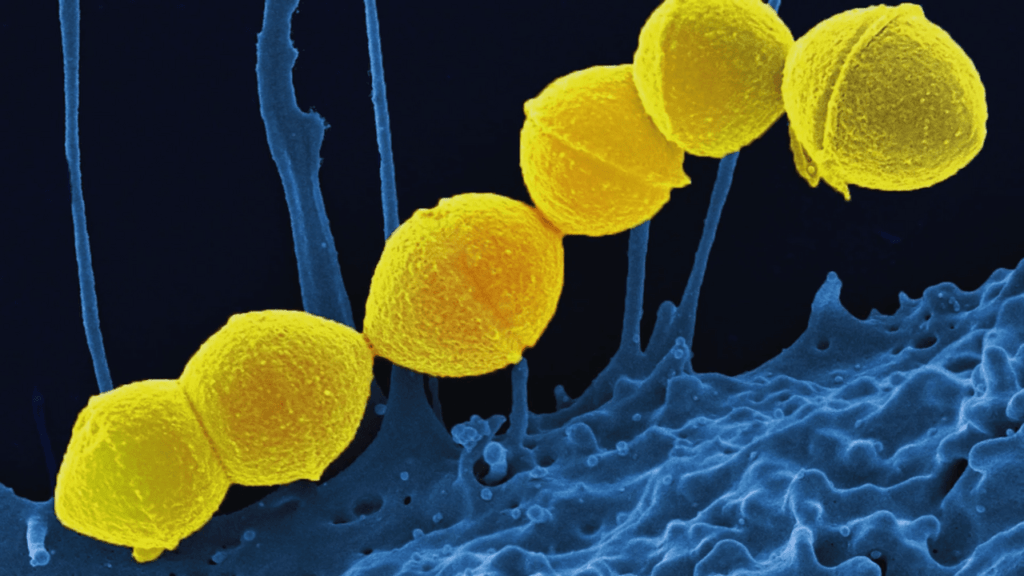
Flesh-eating bacteria, scientifically known as Streptococcal Toxic Shock Syndrome (STSS), is a severe and life-threatening infection caused by the Group A Streptococcus (GAS) bacterium. This condition, which can kill within 48 hours of symptom onset, has been spreading at an alarming rate in Japan, prompting significant concern among health officials and the general public.
What is STSS?
STSS is a rare but critical condition often starting with flu-like symptoms, such as fever, chills, nausea, vomiting, and muscle pain. The bacteria can enter the body through minor cuts or abrasions and rapidly invade deeper tissues, leading to severe systemic infections. The progression is rapid; within hours, patients can experience severe pain, swelling, and fever, followed by confusion, low blood pressure, and organ failure.
As of June 2, 2024, STSS cases in Japan have reached 977, surpassing last year’s total of 941 cases, as reported by Japan’s National Infectious Disease Institute. This surge is partly attributed to the easing of COVID-19 restrictions, which has increased the transmission of various infections, including GAS.
STSS can affect anyone, but it is more prevalent among the elderly, individuals with weakened immune systems, and those with chronic conditions such as diabetes or alcohol dependency. The elderly population in Japan, which is considerable, is particularly vulnerable. Cases are also common among those with recent skin injuries, making preventive measures crucial.
Flesh-Eating Bacteria : Symptoms and Treatment
The initial symptoms of STSS resemble common illnesses, making early diagnosis challenging. Symptoms include fever, severe pain, swelling, and redness at the infection site. As the condition progresses, patients may experience confusion, rapid heart rate, and cold extremities due to low blood pressure. Prompt medical attention is essential, as the disease can cause death within 24 to 48 hours.
Treatment for STSS requires immediate medical intervention. This includes intravenous antibiotics, fluids, and, in severe cases, surgery to remove infected tissues. The key to successful treatment lies in early diagnosis and rapid administration of antibiotics.
Preventive measures include maintaining good hygiene, promptly treating wounds, and seeking immediate medical attention for any signs of infection. Wearing masks and practicing social distancing can also reduce the risk of contracting and spreading the bacteria.
The Japanese Health Ministry has reassured travelers that it is safe to visit Japan but advises practicing basic infection prevention measures such as hand hygiene and mask-wearing. The World Health Organization (WHO) has not recommended any travel restrictions related to the outbreak, emphasizing the importance of maintaining preventive measures to control the spread.
Summary
The outbreak of flesh-eating bacteria in Japan is a significant public health concern. While the condition is rare, its rapid progression and high fatality rate necessitate awareness and prompt medical attention. Maintaining good hygiene and being vigilant about any signs of infection can help mitigate the risks associated with this severe illness.
By staying informed and taking preventive measures, individuals can protect themselves and contribute to controlling the spread of STSS.
Read Next:

The Psychology of Love: Why Valentines Day Matters More Epic Than You Think
Discover the psychology of love and why Valentines Day is more important than you think. Learn how love impacts the brain, strengthens relationships, and boosts

Premier League Highlights: Arsenal Humiliate Man City 5-1, Spurs and Palace Secure Crucial Wins
Arsenal demolished Manchester City 5-1 in a statement premier league highlights win, reigniting their title hopes. Meanwhile, Crystal Palace stunned Man United 2-0, and Tottenham

How Budget 2025 Impacts the Indian Middle-Class: Major Tax Benefits and Glaring Omissions
Budget 2025 offers major tax relief to the middle class, including zero tax on incomes up to ₹12 lakh. However, it misses out on incentives
